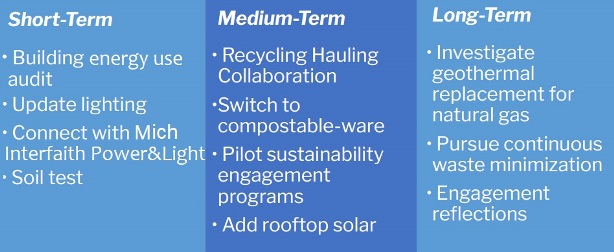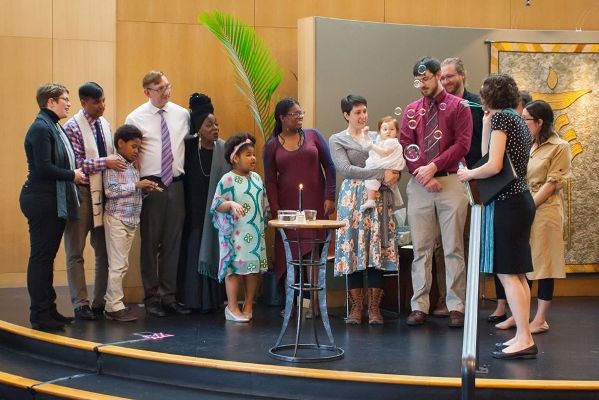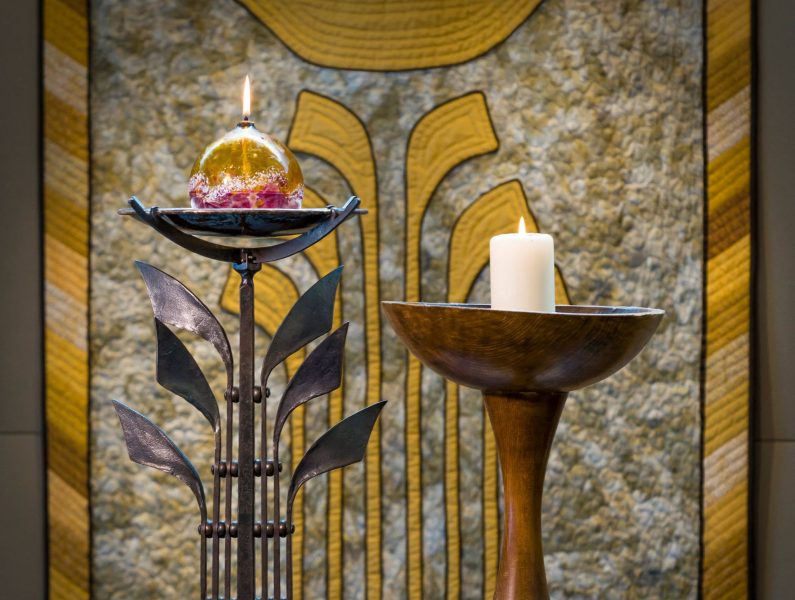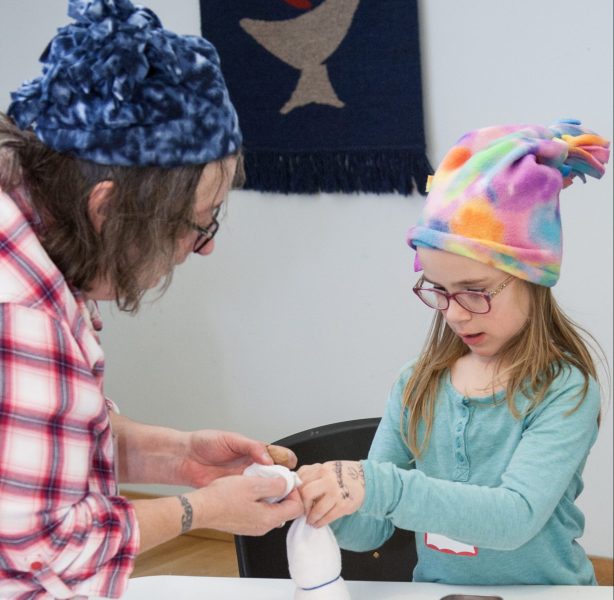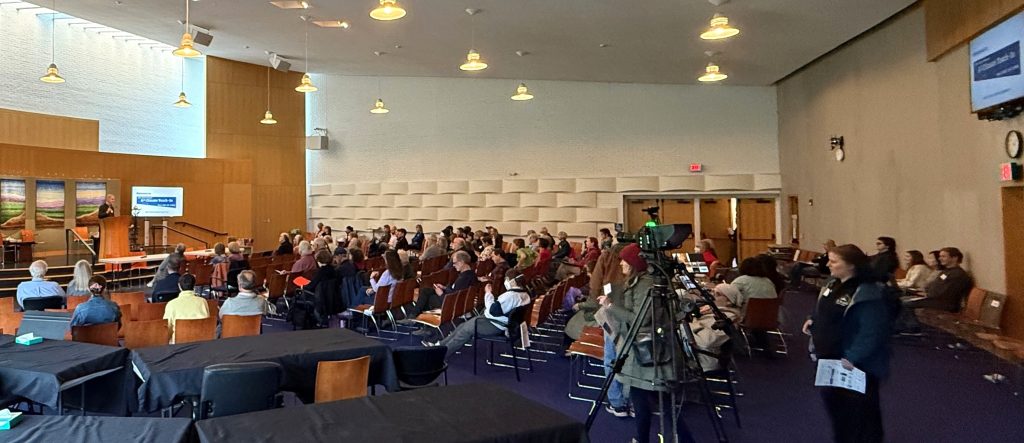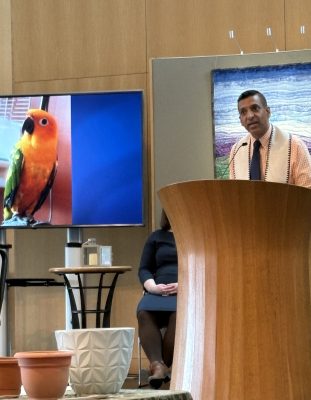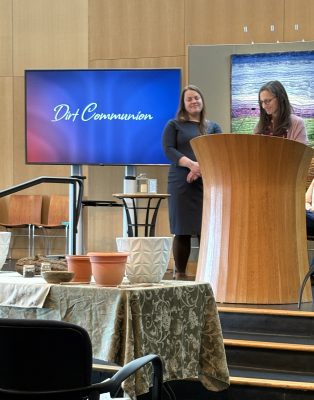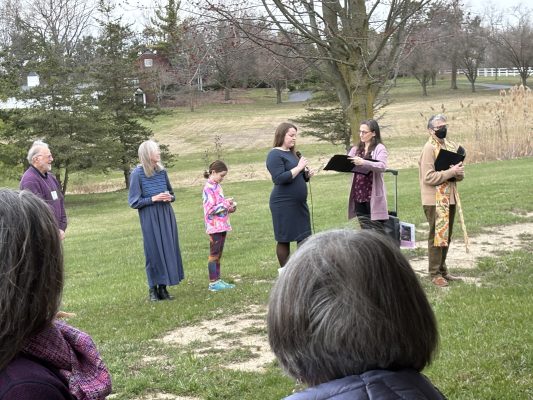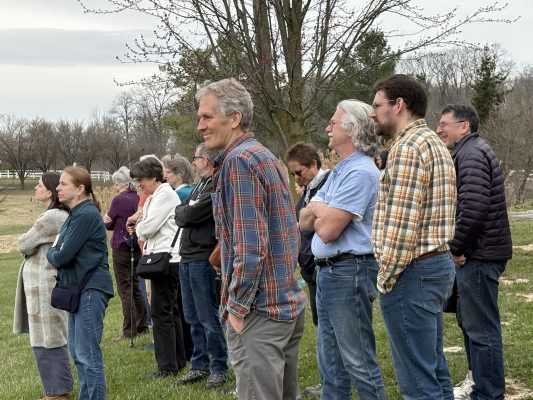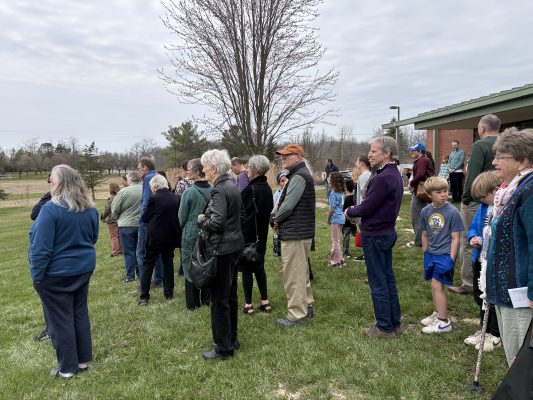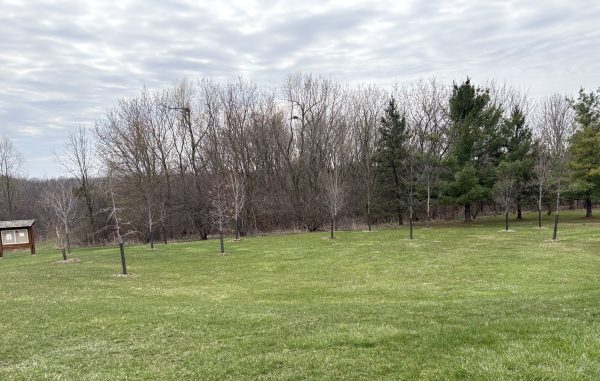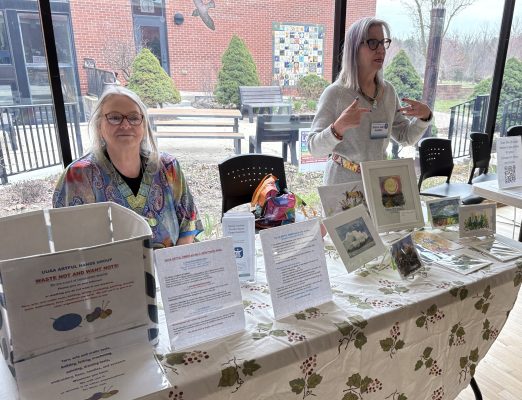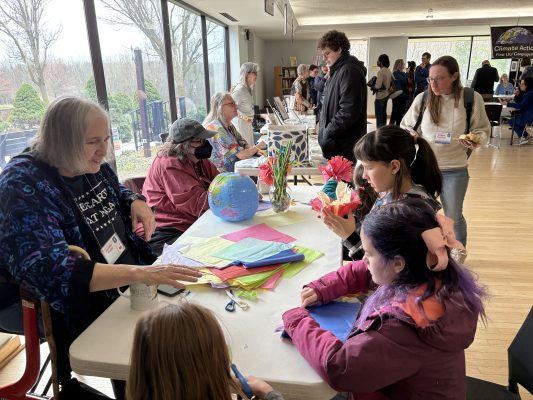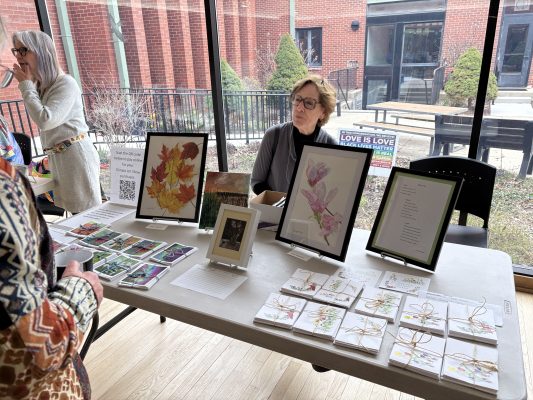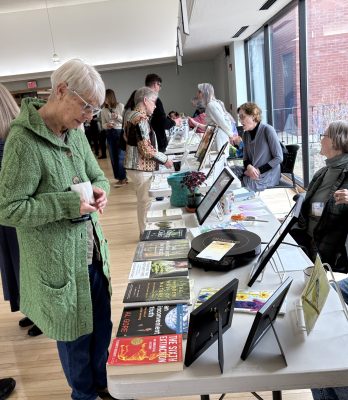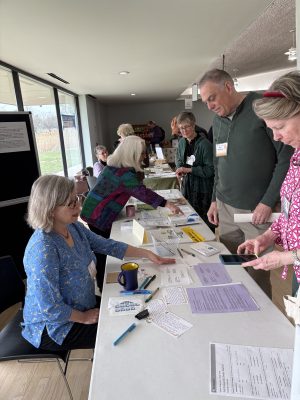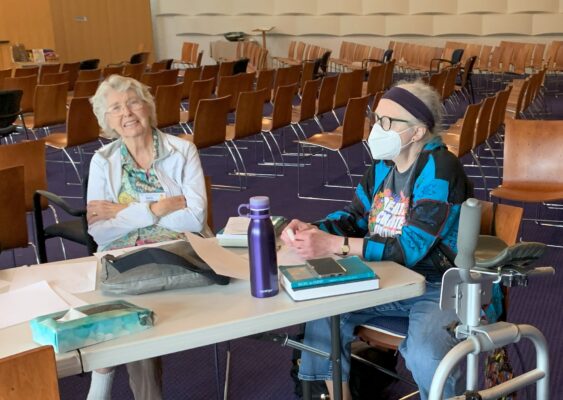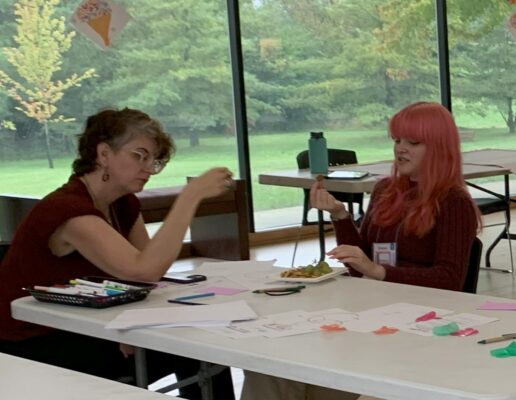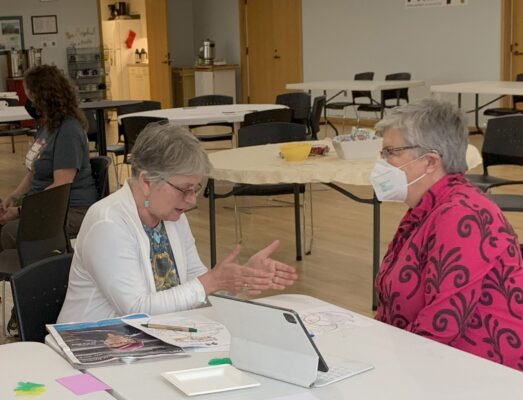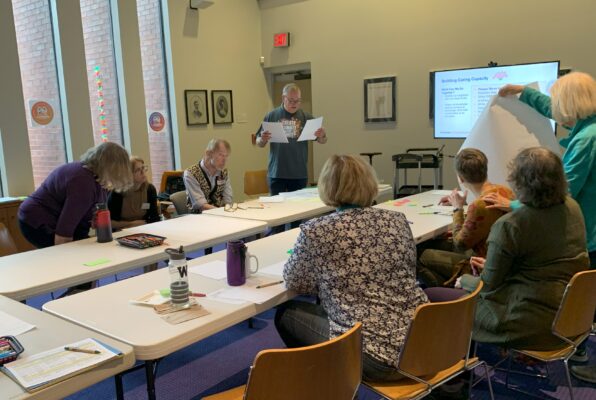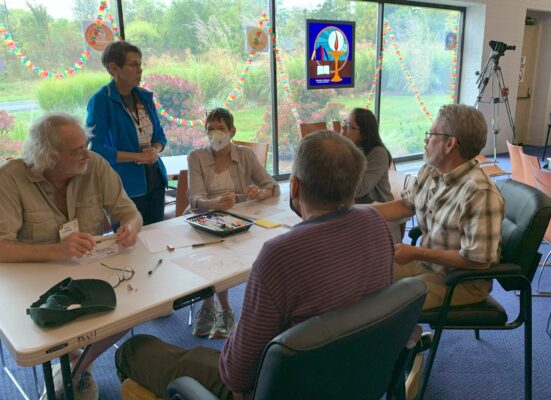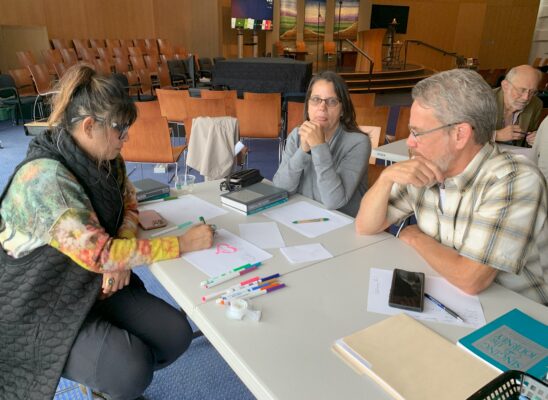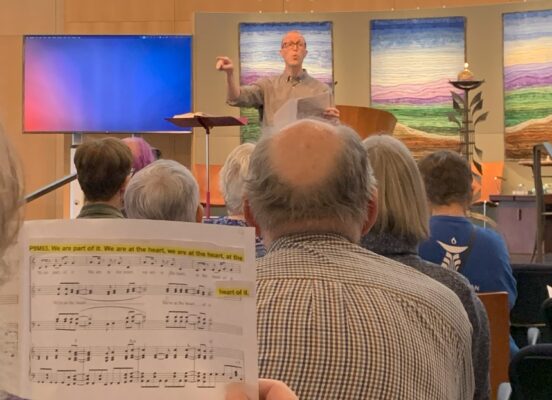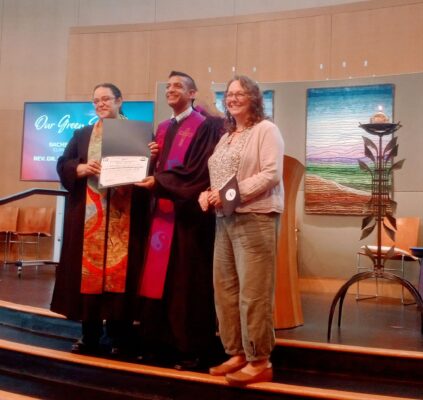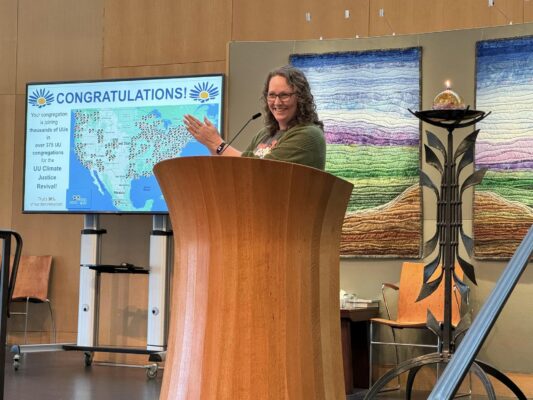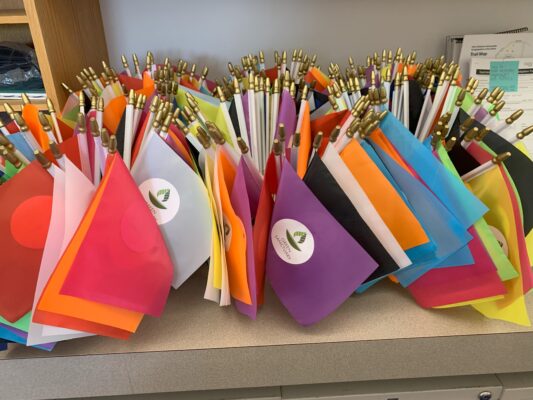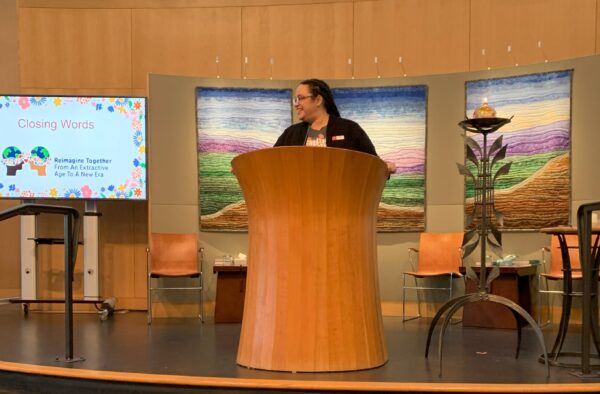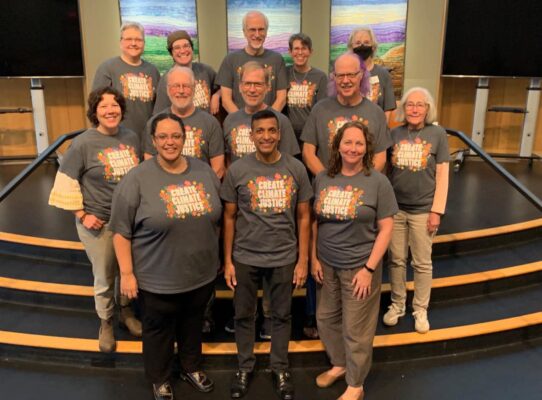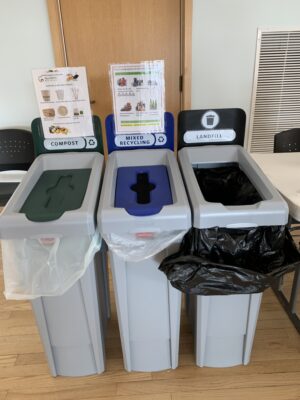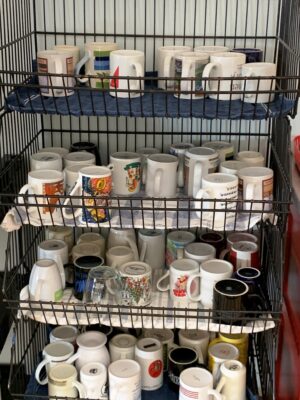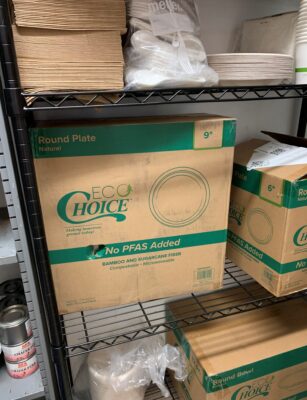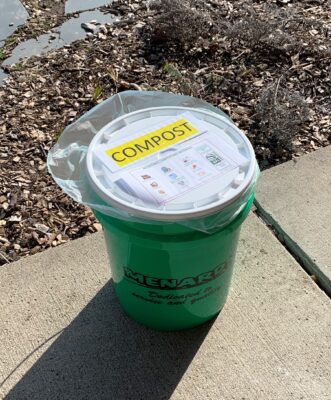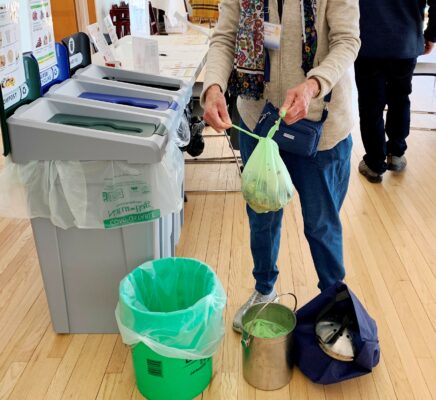Our Vision 2050 document reminds us that UUAA has a long history of social action and involvement in environmental issues, We are called to learn all we can; we are called to seek new ways of being in relationship with our natural world.
UUAA hosted the 2025 3rd Annual A2 Climate Teach-In on Sunday, May 4th
UUAA got to show off our new solar panels and our congregation’s climate action culture to the 180 attendees of the A2 Climate Teach-In on May 4th. The annual event is sponsored by 10 area congregations and 10 civic and environmental groups, with generous sponsor support from A2 Zero and VegMichigan.
This year’s teach-in was designed to turn climate anxiety into climate action, with practical information on taking building green, getting involved in advocacy, learning about resilience hubs and making your personal action plan.
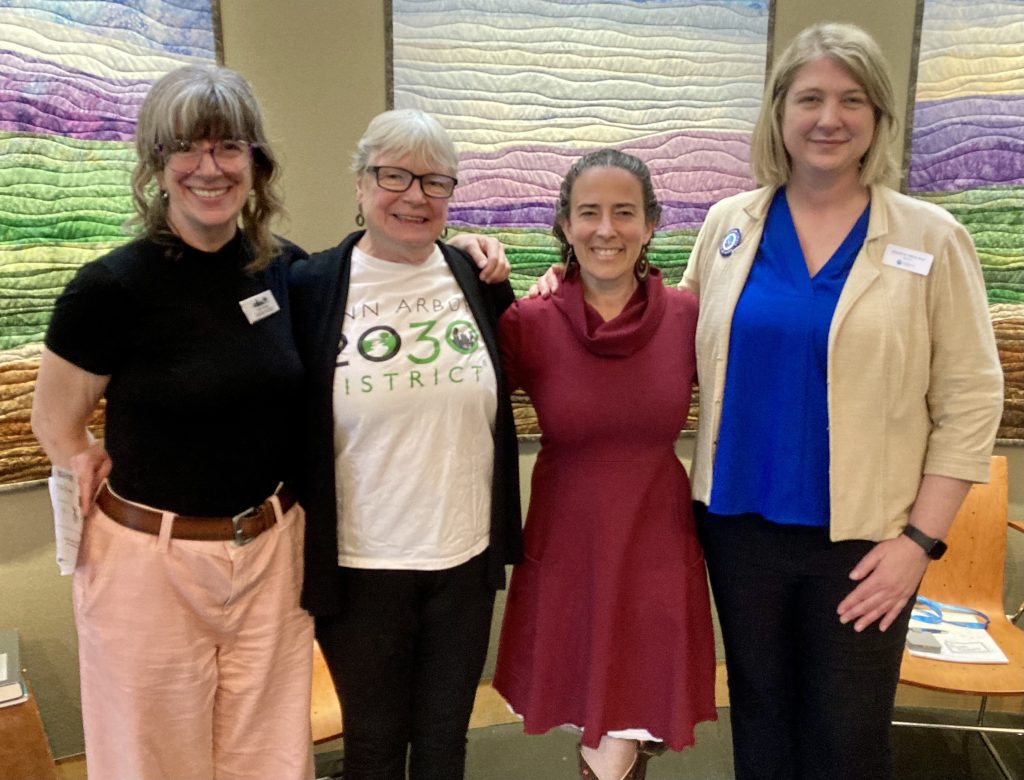
The keynote speakers gave inspiring, upbeat, personal stories spotlighting local and Michigan-wide successful climate work. The speakers were Julie Roth (Ann Arbor Solarize), Jan Culbertson (Washtenaw 2030 District), Beth Gibbons (Resiliency Office, Washtenaw County) and Dr. Denise Keele (Michigan Climate Action Network).
A couple of key take-aways: 1- Climate Activists need to start acting like the majority that they are! 89% of the world wants more climate action. 2- If you are going to take personal action on something, why not look for a way to increase your impact by spreading the word to others — cause a ripple effect.
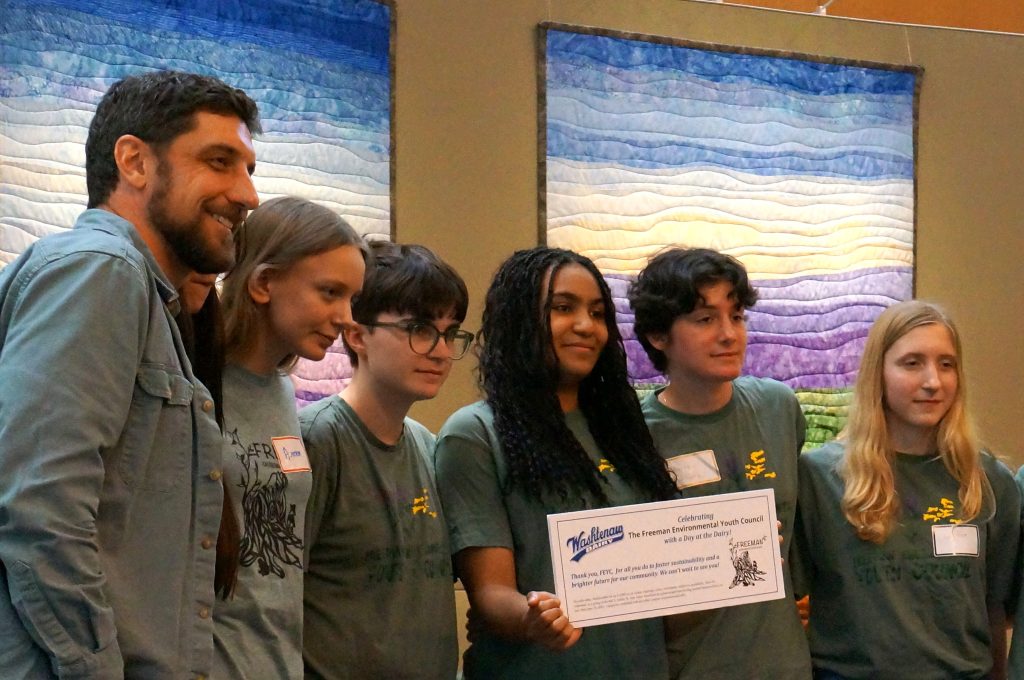
Something new this year — a workshop especially for youth — and designed by the youth members of the Freeman Environmental Youth Council. Middle-schoolers and high-schoolers took part in a hands-on exploration of their trash. They reported out on their findings in the closing session. Their thank you gift was a certificate for ice cream donated by Washtenaw Dairy. [photo credit DVXCreative.com]
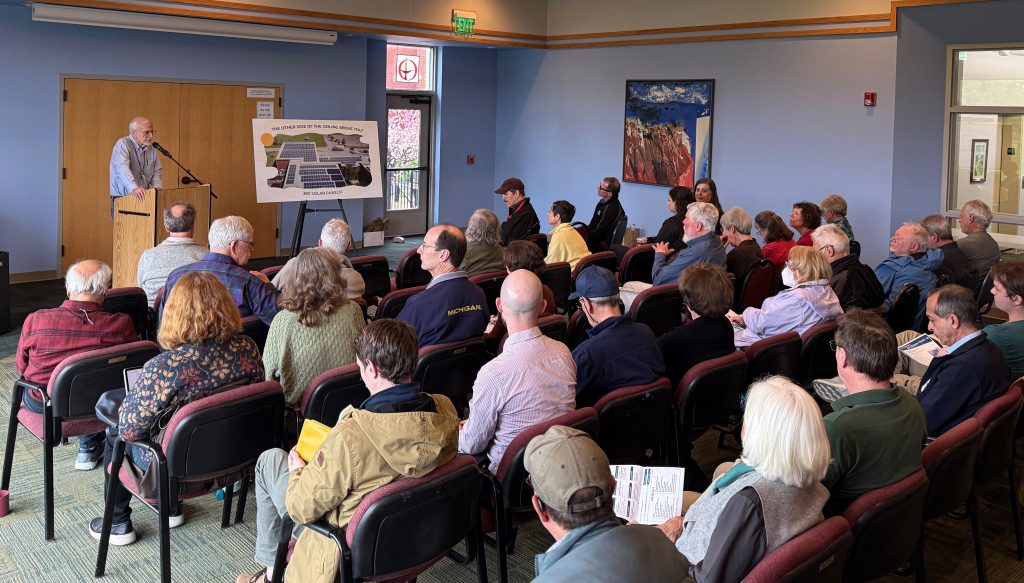
Ed Lynn held two breakout sessions on Buildings Going Green, sharing UUAA’s experiences with other congregations and organizations. [photo credit DVXCreative.com]
Thank you to the UUAA staff and to the many volunteers from UUAA, St. Clare’s Episcopal Church and Temple Beth Emeth who made this event run smoothly.
Earth Day 2025 – A Celebration for All Ages On April 13, 2025
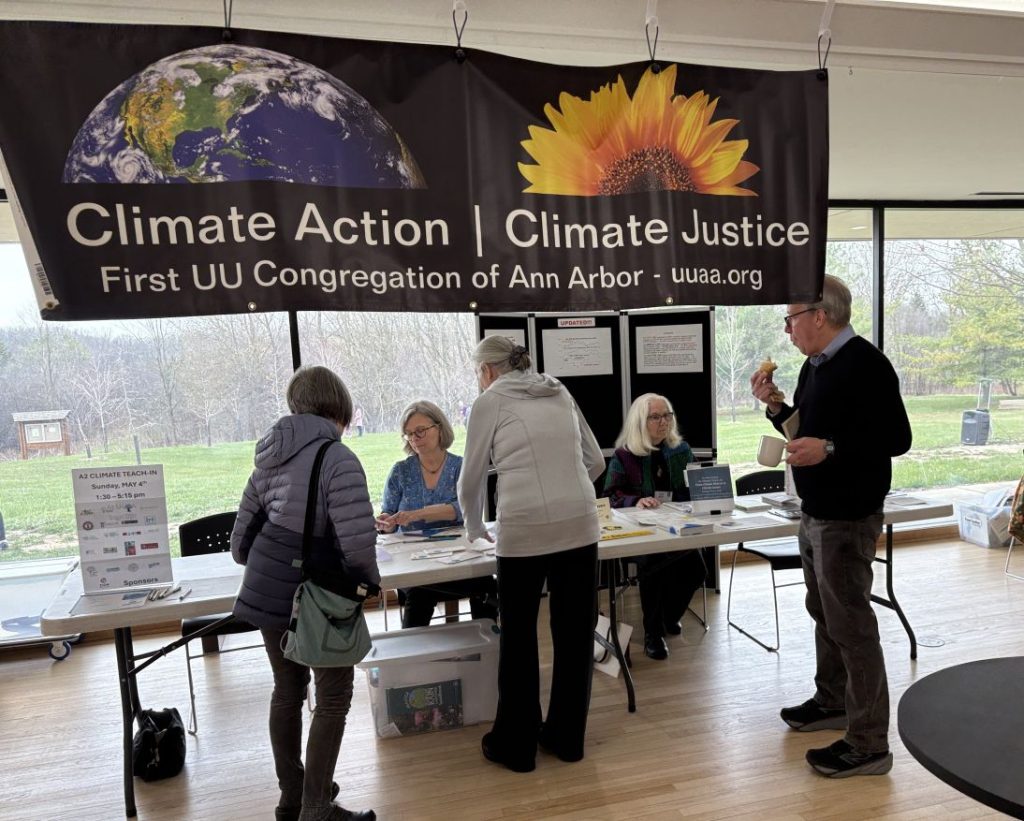
We celebrated our beautiful planet Earth on Sunday, April 13th at both services. The all-ages worship service included the annual Dirt Communion, music by the bell choir, stories of ways animals can teach humans, the blessing of the ancestor’s grove and more. The hallways and social hall spotlighted
- Nature Art & Poetry from UUAA Painters and the Community of Writers
- Kids Craft Table brought to us by the Friday Fun Night Folks
- Info from UUAA Climate Justice and Food Justice Teams
- Postcards to send our legislators– made easy by our UUCivs group
- Nature note cards to purchase
- Climate books to peruse and discuss
Photos of UUAA Earth Day Celebrations 2025
Reflections on the Sept 28-29 UU CLIMATE JUSTICE REVIVAL

“Re-imagine Together: From an Extractive Age to a New Era” is a project of the UU Climate Justice Coalition and Friends. The Revival builds on decades of faithful and visionary UU climate and environmental leadership and is designed to encourage collaboration amongst congregational teams and break down silos. Together, we can move past systems and cultures of extraction to usher in a new era with love and justice at the center of our climate actions.
View the recorded Sept 29th service at uuaa.org/service
During our Action Hour following each service we urged all UUAA congregants to get involved in promoting community solar energy in Michigan! Community Solar is a justice issue– Community Solar allows people who live in apartments and rentals to share in the clean energy/ cost reduction revolution. There is a long way to go, but Ann Arbor’s November, 24 vote to establish an SEU (Sustainability Energy Utility) is a good first step.
Rev. Dr. Sofía Betancourt, UUA President, is is a minister, educator, scholar, vocalist, poet, fiber artist, and change-maker.
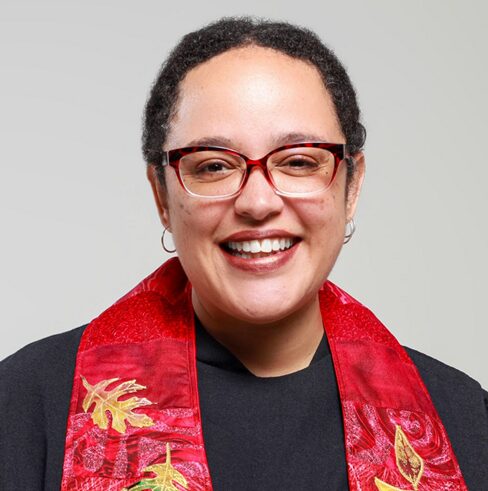
Rev. Sofía opened and closed our Saturday workshops and both sang and preached at both services on Sunday, September 29th.
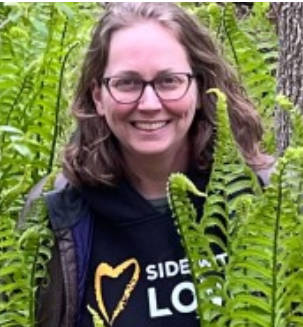
Rachel Myslivy is the Climate Justice Strategist for the UUA’s Side With Love Organizing Strategy Team and a key leader for the UU Climate Justice Revival. Rachel also leads the Green Sanctuary 2030 program and has helped guide UUAA to our GS 2030 recognition.
Was this Revival about carbon emissions? Not at all! We talked about the intersectionality of all of our justice work. Want to know more about what that means? Please watch this 3 minute video from Rachel Myslivy.
Want to explore more connections between Climate Justice and other justice issues like economic justice and gender justice? Watch this Side With Love series of videos ” Climate at the Intersections.

CONGRATULATIONS to Ed Lynn- Sermon Contest Winner!
Ed Lynn’s sermon entitled “Here” is a winner of the UU Climate Justice Revival Sermon Contest. 64 sermons were submitted and Ed’s was one of 8 selected as best speaking to “How would our world transform if love was at the center of our climate actions and collective liberation were upheld as a uniting goal across all of the movement spaces that matter most?”
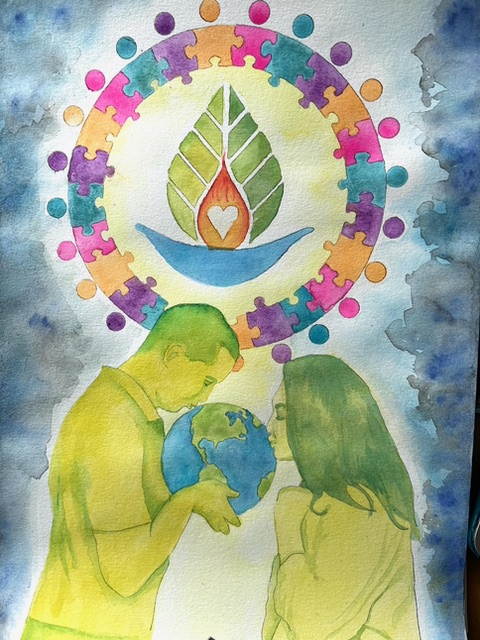
CONGRATULATIONS to Julie Tanguay- Art Contest Winner!
Julie’s watercolor art (shown here and on display at UUAA, won the national competition for artwork themed “Love at the Center”. There were 3 categories in the contest: Love at the Center, Reimagining Together, and Abolitionist Visions of Climate Justice.
Beautifully done, Julie!
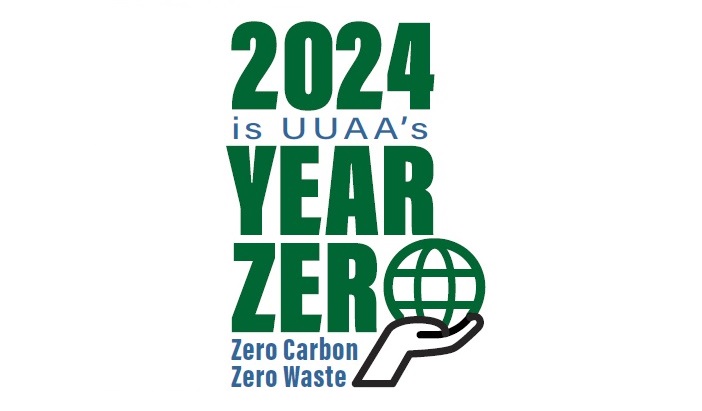
2024 was YEAR ZERO at UUAA
Why did we call 2024 Year Zero? Because it was a year of amazing progress on UUAA’s Vision 2050 climate goals to get as close as possible to
Learn more about the Climate Action | Climate Justice team
ZERO CARBON
27 years ago we designed the roof of the UUAA building to harvest the sun. The generosity of this congregation has made that beautiful goal a reality. Thank you capital campaign donors and thank you visualizers.
Installation of Our New Solar Panels Began on Earth Day
On April 22, 2024, Homeland Solar began the installation of 268 new solar panels on our roof. We now have 370 rooftop solar panels. With the 10 panels on the tracker in front of the building, our total of 380 solar panels is capable of producing almost 160,000 kWh of electricity annually.
Before Covid we used about 200,000 kWh per year. In the last few years, we have modified building use, installed energy efficient lighting and addressed all of our energy audit issues so that we are now using135-140 kWh annually – total, including solar. Significant progress… with more to come. (Contact climate@uuaa.org if you have ideas for getting closer to zero.)
Thank you to Mike Halerz for this inspiring drone view of our solar array!
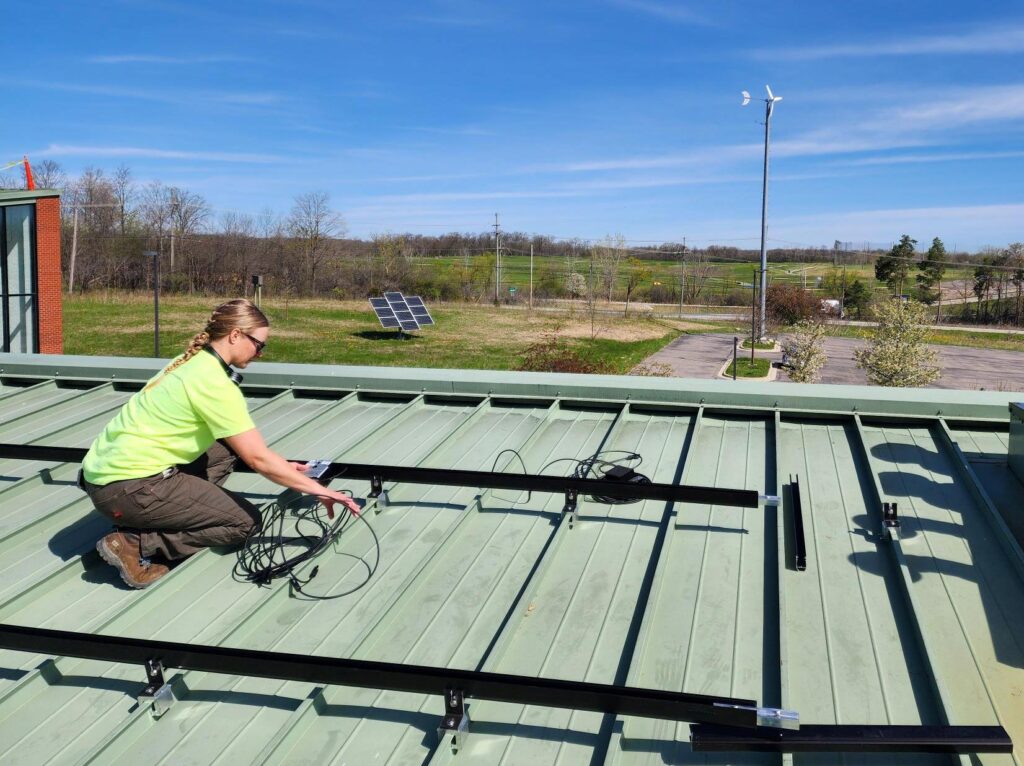
ZERO WASTE
We have been recycling and working on reducing waste at UUAA for a long time. Then we doubled down…NEW in January, 2024– We contracted with a composting service (MyGreen Michigan) and have been expanding our care for our planet by reducing what we send to landfills. You can even bring your food scraps from home if you aren’t able to compost.
The Climate Action | Climate Justice Team
The Climate Action/ Climate Justice team lifts up, encourages, inspires and celebrates the many ways UUAA groups are working on our Vision 2050 climate goals to build a cleaner and healthier world for our children and grandchildren. We are on the front lines of overseeing the climate & environmentalism goals described in A Congregational Vision, the document that was created from a 2 year congregational visioning project.
UUAA wants to live into Unitarian Universalism’s 7th Principle, “Respect for the interdependent web of all existence of which we are a part” by serving as an example of sustainable living in right relationship with the natural world. We want to learn about climate issues together. We want to further build on our past renewable energy projects to reach carbon neutrality. We want to broaden our view of climate action to include justice for vulnerable communities most affected by, and least responsible for climate change.
How you can help
The entire UUAA congregation, all ages and all interests, is needed to help UUAA shrink our carbon footprint, work for climate justice in our community and support each other in our climate learning. You can be part of this effort at whatever level of involvement works for you, from becoming more diligent about your home recycling and food waste, to leading a multi-year climate project. To add your address to the climate action email list, contact climate@uuaa.org. Click the button below to read a summary of our multi-year Climate Action Plan, mapping our work together over the next several years!
Recent climate projects throughout UUAA have included: expansion of our rooftop solar, the Zero Waste campaign, planting an “Ancestors’ Grove” of trees, helping plan and run the 2nd Annual A2 Climate Teach-in, holding an all congregation celebration of climate work on Friday Fun Night and Earth Day 2024, a Green Corner column in our Weekly News, a climate potluck last summer and much more.
Green Sanctuary 2030
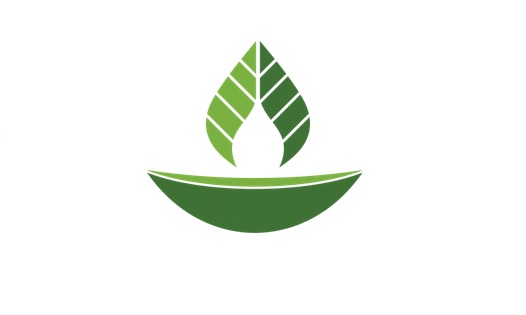
To help us organize our efforts to lower our carbon footprint, build sustainability, partner with local climate justice groups, and learn alongside other UU congregations, UUAA enrolled in the Unitarian Universalist Association’s (UUA) Green Sanctuary 2030 program. The steps we have completed are:
1- [Submitted March, 2021] Write a Congregational Profile that grounds our work in our congregation’s history and past / current environmental projects. Learn about our foundations in environmentalism by reading UUAA’s Congregational Profile.
2- [Submitted June, 2022] Write an Opportunity Assessment showing potential actions we might take over the next several years. These proposed actions were gathered from a survey of the congregation, many meetings with current UUAA groups, connections with Ann Arbor and UU climate based organizations and more. Please read the “in brief” version of the Opportunity Assessment, or the full text as submitted.
3- An Action Plan to guide several years of work together. The plan is based on our current information… and subject to change and evolve as technology changes, passions of the congregation emerge and the world changes around us.
4- We have been submitting “Action Reports” on the many climate events and projects at UUAA as they occur. We received recognition for our climate work from the GS 2030 leadership at the 2024 UU Climate Justice Revival. UUAA will remain active with the GS 2030 group indefinitely.
UUAA 2021 Collaboration with the U-M Graham Sustainability Institute
A team of University of Michigan students led a project to look at UUAA’s building and internal processes to make recommendations for working toward our energy goals. The team collaborated with six UUAA members, staff, and ministry group leaders, including Ed Lynn, Jeannine LaPrad, Colleen Crawley, Don Hackney, and Dave Friedrichs. Elizabeth LaPorte facilitated the project as part of the U-M Graham Sustainability Scholars Program, which she manages. Their report was submitted in March, 2021 and recommended actions are already underway.
The team divided the analyses and recommendations into four categories.Some of the recommendations are listed briefly in each category below. Full reports are linked under the bulleted lists..
Interested in helping sort out the priorities and do some planning for this initiative? Email climate@uuaa.org.
Zero Waste
- Form a volunteer driven recycling collaboration with other area religious organizations.
- Move to using compostable-ware and hold zero waste events.
- Create a zero waste culture.
— Read the Guide for a path to Zero Waste.
Building & Energy
- Conduct a building energy audit.
- Install more LED lights.
- Install more solar panels on the roof.
- Explore the possibility of geothermal heating.
— Read the UUAA Building & Energy Analysis Report.
Landscaping
- Incorporate more native plants.
- Create learning spaces where people can engage and learn about the environment.
- Plant for carbon sequestration.
- Create landscaping projects and learning guides for all ages.
— Read the recommendations for using landscaping to help reach carbon neutrality.
Building Congregational Engagement in Sustainability
- Use the event toolkit provided to plan sustainability events that engage all ages.
- Make a sustainability checklist that groups can use when planning events.
— Read the recommendations for projects to engage the whole congregation in thinking sustainability.
Time frame recommendations –
